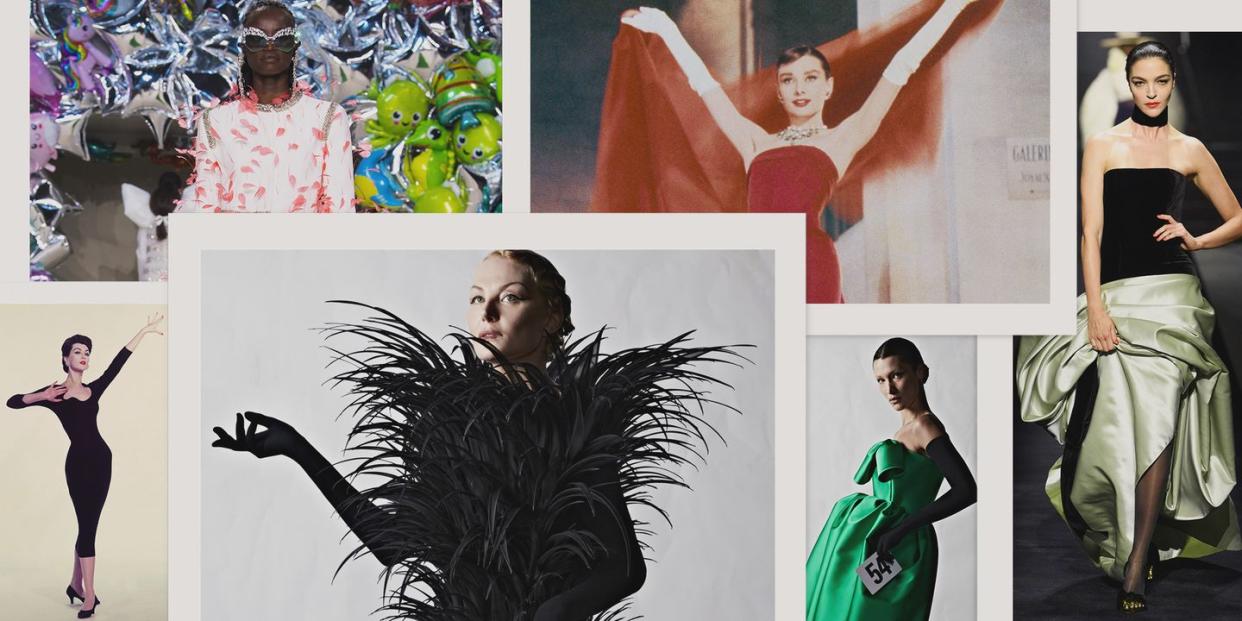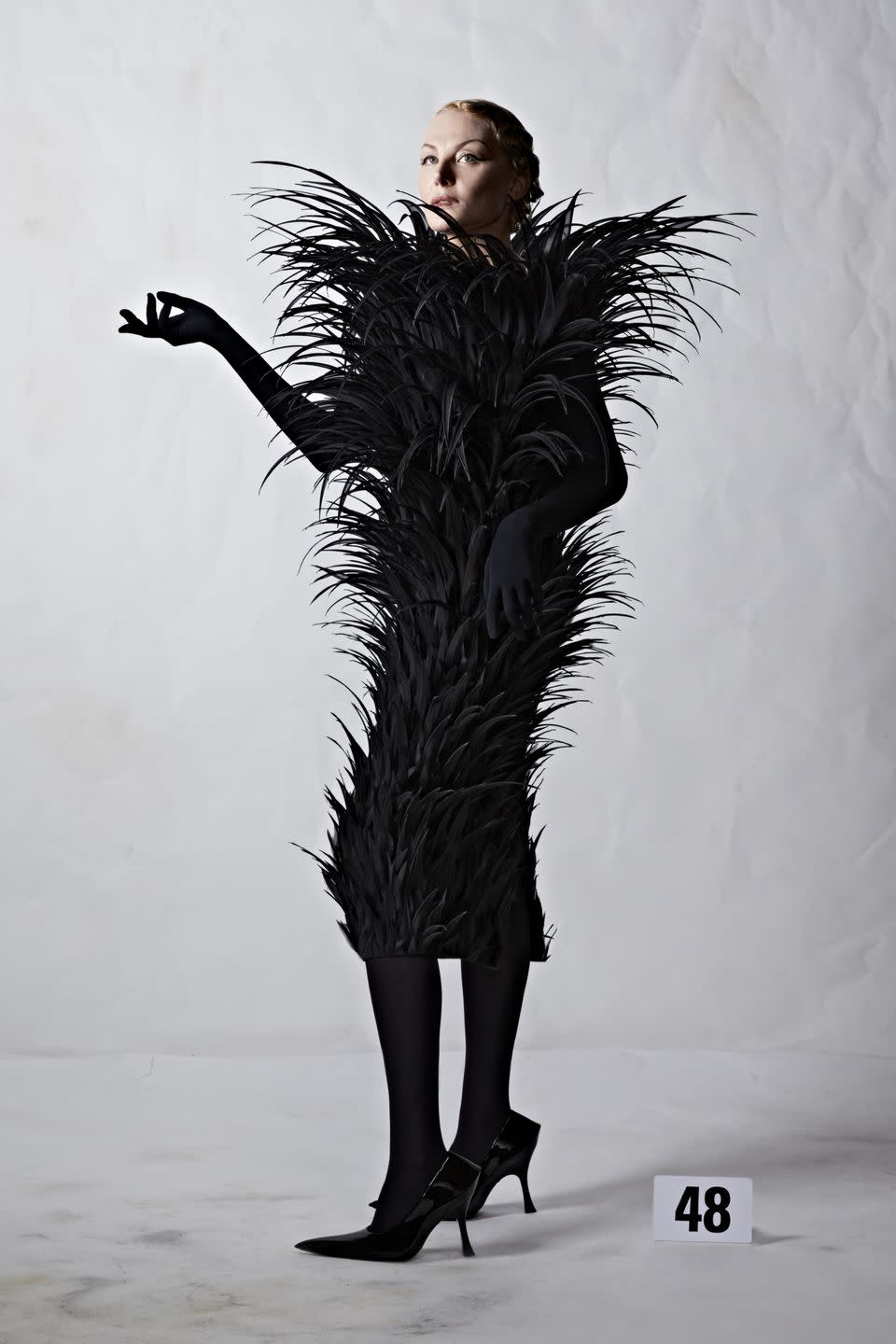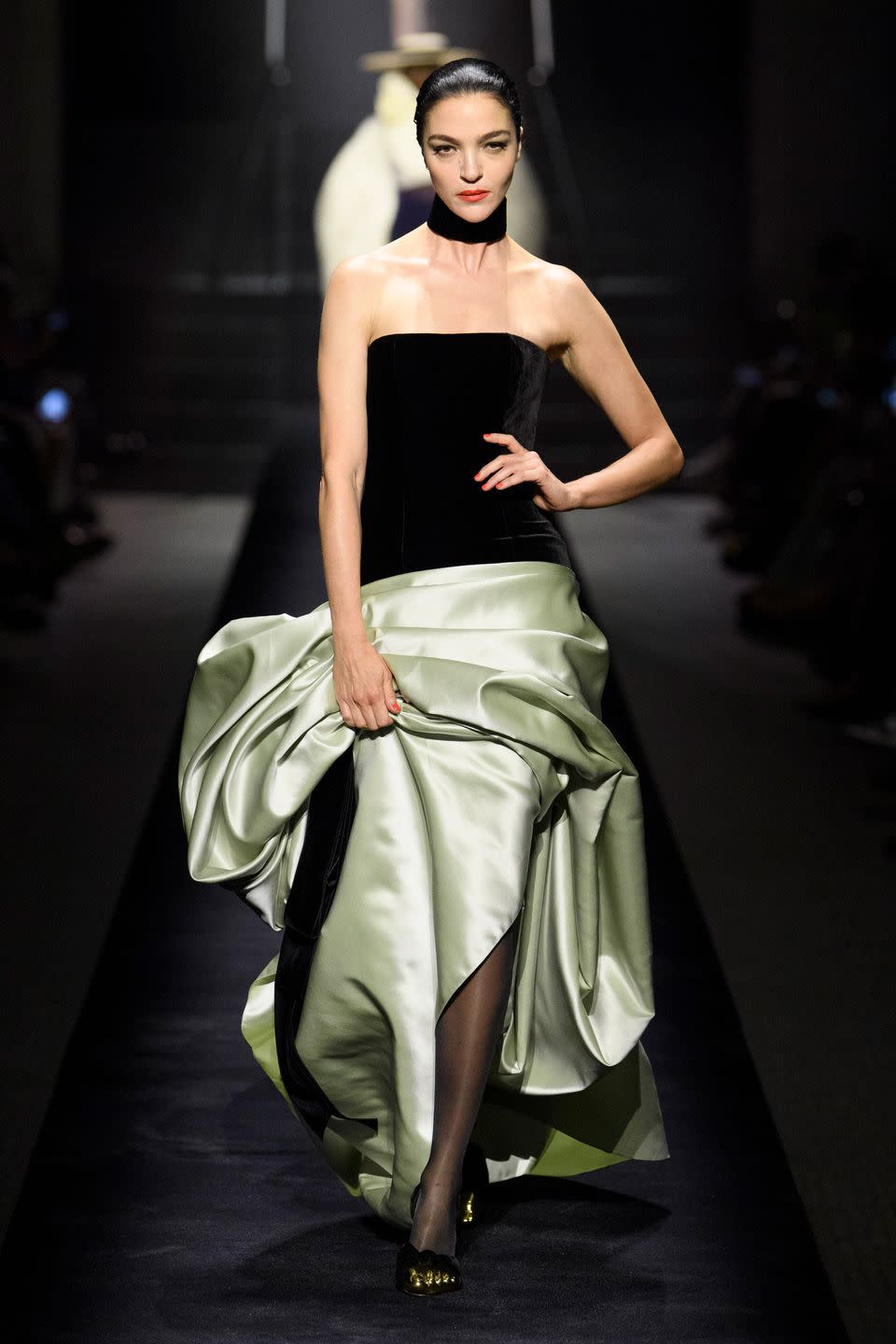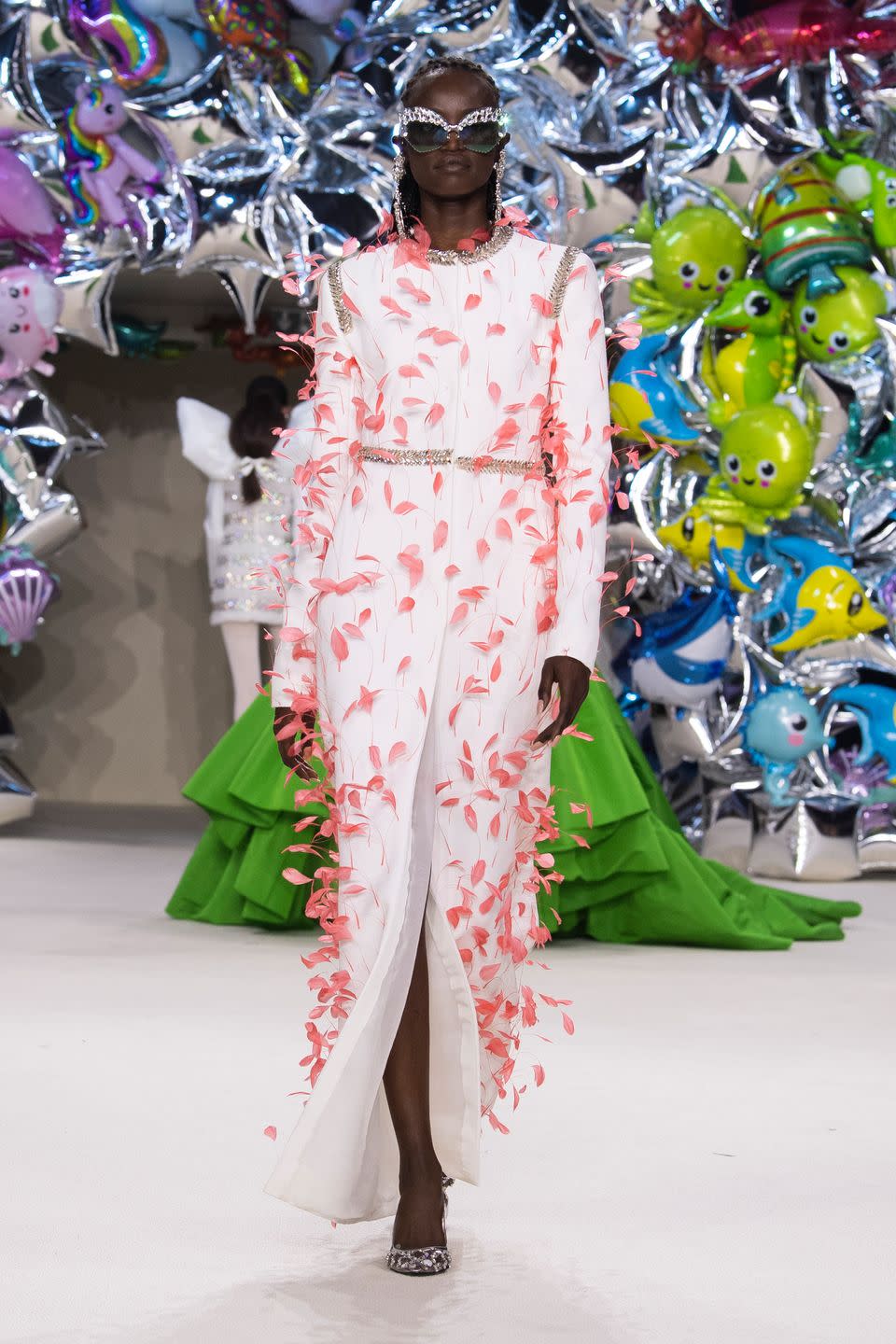Can’t Couture Just Be Fun?

- Oops!Something went wrong.Please try again later.
- Oops!Something went wrong.Please try again later.

Style Points is a weekly column about how fashion intersects with the wider world.
Couture is planting its feet firmly in the past. For a few years, the medium has been advancing an argument for why it still makes sense in the 2020s; see: last season’s futuristic, sci-fi take and the prior season’s newcomer-filled schedule and playful offerings. But that mood has ceded to a fall 2022 season that riffs on the medium’s midcentury Funny Face heyday. Fashion is always going to reflect the times, and can’t exist outside them, as much as it might like to. But these collections seemed to contain nostalgia for a time before political statement-making was de rigueur on the runway. It was not escapism so much as the idea that, sometimes, creating something beautiful can itself be political, a small act of resistance in an ugly world.
At Balenciaga, Demna (the designer is now going by his first name only) has nodded to the house’s past silhouettes and mores, like models carrying numbers denoting each look. Kim Kardashian pulled a Dovima in a fitted black gown and Nicole Kidman, Dua Lipa, and Hunter Schafer joined her in their own retro runway stylings, ensuring headlines would be made. But it wasn’t just big-name couture newcomers who made an appearance: Danielle Slavik, who was a house model for founder Cristóbal Balenciaga in the 1960s, returned to the catwalk, closing the loop between past and present. Still, this being Demna, there was an abundance of modern touches, too—most notably a Bluetooth sound-system bag made in collaboration with Bang & Olufsen and a couture face shield that gave the wearer the look of an eerie replicant.

Elsa Schiaparelli was a woman who considered the lobster—and then didn’t hesitate to put it on a gown. Her still-influential Surrealist vision—currently on display at the Musée des Arts Decoratifs’ show “Shocking!”—is alive and well in Daniel Roseberry’s clever reincarnation, which remixes her motifs with his own. In fact, he titled this season’s collection “Born Again,” with Elsa-worthy riffs that included doves-as-epaulets, flowers erupting from a bodice, and “drawers,” complete with gilded pulls instead of pockets. Even the looks that didn’t channel Surrealism felt like they were nods to a bygone time, like his Christian Lacroix-influenced ’80s ensembles or Mariacarla Boscono’s swirling, celadon-skirted gown and black choker worthy of a Sargent heroine.

In his show notes, Roseberry made an explicit argument in favor of fantasy in a world where fashion is now expected to engage with every current event. The directive that shows reflect the times is a mindset that has, he acknowledges, resulted in some “extraordinary work.... But it’s also led to a sometimes dreary self-seriousness, one that foregrounds fashion with sloganeering,” he wrote. “The more difficult path is remaining an engaged member of society while also, in one’s work, daring to return to a kind of creative innocence, to the state of wonder and awe we all felt when we saw our first transcendent show.”

Giambattista Valli has always been drawn to perfecting the past. In his first show since 2019, the designer looked to English gardens and New York nightclubs (specifically Studio 54) to create looks where spangles met foliage, his beloved ruffles worked into various botanical shapes. There were lashings of feathers and society swan-worthy updos, a callback to the intricate, decorative touches of a long-lost world.
Beauty gets a bad rap, in that it’s often seen as incompatible with seriousness. And retreating into fantasy can be an apolitical choice. But other times, the medium is the message. As Roseberry put it, “I think we sometimes get defensive when our critics accuse us of just wanting to make beautiful things. But what’s wrong with wanting to make beautiful things?”
You Might Also Like

